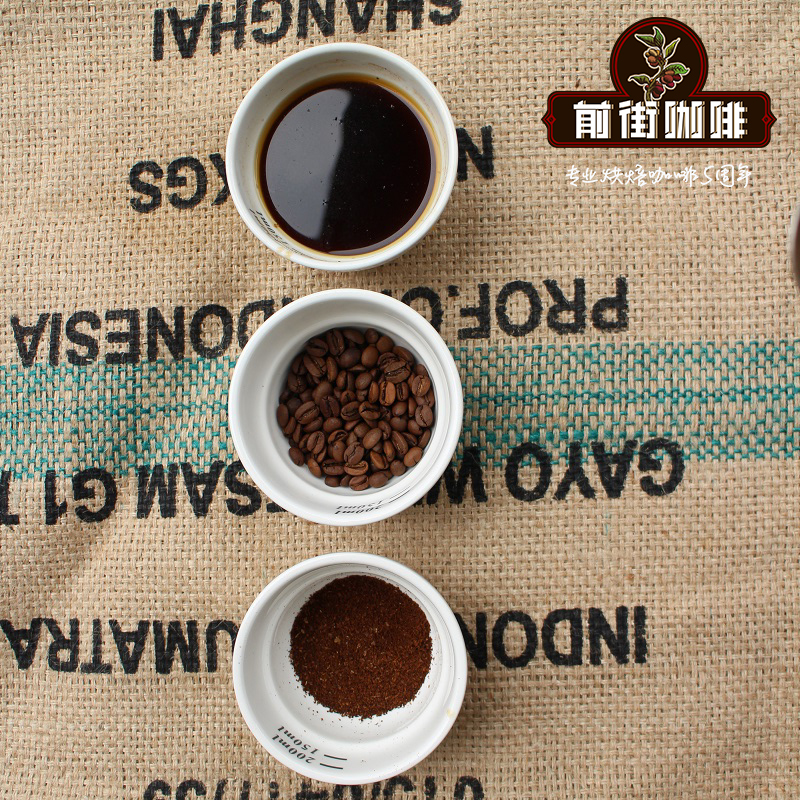Tanzania Coffee Kilimanjaro Coffee Story of Kilimanjaro Coffee

Professional coffee knowledge exchange more coffee bean information please follow the coffee workshop (Wechat official account cafe_style)
Tanshania coffee was first introduced by Catholic priests in 1898, and then KENT was reintroduced in 1920. Up to now, mainly bourbon and Kent are the main varieties of Tanzanian coffee. The market likes to compare neighboring Kenyan coffee with Tanzanian coffee. It is generally believed that Kenyan coffee is obviously superior in bright acidity, but Tanzania coffee has a soft and mild taste, especially in terms of sweetness. Kenyan coffee is also unmatched.
You may ask, what are the advantages or particularities of the growth conditions of Kilimanjaro Mountain Coffee? This is because Mount Kilimanjaro is not only the highest mountain in Africa, but also the second largest crater in the world. Friends who have read the Coffee Roasters Asia blog or have done a lot of research on coffee should know that volcanic ash soil is an excellent nourishment for coffee beans. On the other hand, the volcanic soil of the Kilimanjaro mountain is fertile, weakly acidic and well drained, and the combination of climate and geology makes the coffee flavor rich.
You may ask, what are the advantages or particularities of the growth conditions of Kilimanjaro Mountain Coffee? This is because Mount Kilimanjaro is not only the highest mountain in Africa, but also the second largest crater in the world. Friends who have read the Coffee Roasters Asia blog or have done a lot of research on coffee should know that volcanic ash soil is an excellent nourishment for coffee beans. On the other hand, the volcanic soil of the Kilimanjaro mountain is fertile, weakly acidic and well drained, and the combination of climate and geology makes the coffee flavor rich.
In addition, Africa always gives the impression that the temperature is hot and the humidity is dry all the year round. This is really a big misunderstanding. Take Mount Kilimanjaro as an example. Although the temperature in the mountain can be as high as 59 degrees Celsius, the peak can be covered with snow all the year round, up to minus 34 degrees Celsius, so Mount Kilimanjaro is also known as the "equatorial snow peak." In terms of rainfall, the annual precipitation in the river valley can reach 800mm to 900mm; the mountains are cool and rainy, with an annual rainfall of 1600 to 1800 mm on the windward slope. Grow in the climatic and geographical environment provided by the "equatorial snow peak"
Soft and gentle acidity, but like red wine, more sweet and elegant. If it is roasted in a medium and light degree, its refreshing and smooth acid, orange fruit aroma, and sweet mixed with guava and sucrose, the flavor will change slightly with the change of temperature, so it is a kind of coffee with great character. If baked deeply, there will be an extra round layer: the sweetness of figs, the sweet and steady taste of caramel, and the high cleanliness will enhance the overall flavor of the coffee.
Important Notice :
前街咖啡 FrontStreet Coffee has moved to new addredd:
FrontStreet Coffee Address: 315,Donghua East Road,GuangZhou
Tel:020 38364473
- Prev

Indonesian Sumatra boutique coffee Takangon Manning G1
For more information on coffee beans, please follow the coffee workshop (Wechat official account cafe_style) Manning Coffee is produced in Sumatra, Indonesia, Asia, also known as Sumatran Coffee. Her flavor is very rich, fragrant, bitter, mellow, with a little sour taste. Most coffee lovers drink on their own, but it is also an indispensable variety for blending coffee.
- Next

Kilimanjaro blend Coffee Bean Story what are the flavor characteristics of Kilimanjaro coffee beans
Professional coffee knowledge exchange more coffee bean information please follow the coffee workshop (Wechat official account cafe_style) mention the coffee-producing regions in Africa, which countries do you think of? Is Ethiopia the earliest birthplace of coffee? Kenya is famous for its sour coffee. Or Rwanda, which is famous for the floral and fruity aromas of coffee? The author does not intend to introduce the above famous in this article.
Related
- Detailed explanation of Jadeite planting Land in Panamanian Jadeite Manor introduction to the grading system of Jadeite competitive bidding, Red bid, Green bid and Rose Summer
- Story of Coffee planting in Brenka region of Costa Rica Stonehenge Manor anaerobic heavy honey treatment of flavor mouth
- What's on the barrel of Blue Mountain Coffee beans?
- Can American coffee also pull flowers? How to use hot American style to pull out a good-looking pattern?
- Can you make a cold extract with coffee beans? What is the right proportion for cold-extracted coffee formula?
- Indonesian PWN Gold Mandrine Coffee Origin Features Flavor How to Chong? Mandolin coffee is American.
- A brief introduction to the flavor characteristics of Brazilian yellow bourbon coffee beans
- What is the effect of different water quality on the flavor of cold-extracted coffee? What kind of water is best for brewing coffee?
- Why do you think of Rose Summer whenever you mention Panamanian coffee?
- Introduction to the characteristics of authentic blue mountain coffee bean producing areas? What is the CIB Coffee Authority in Jamaica?

